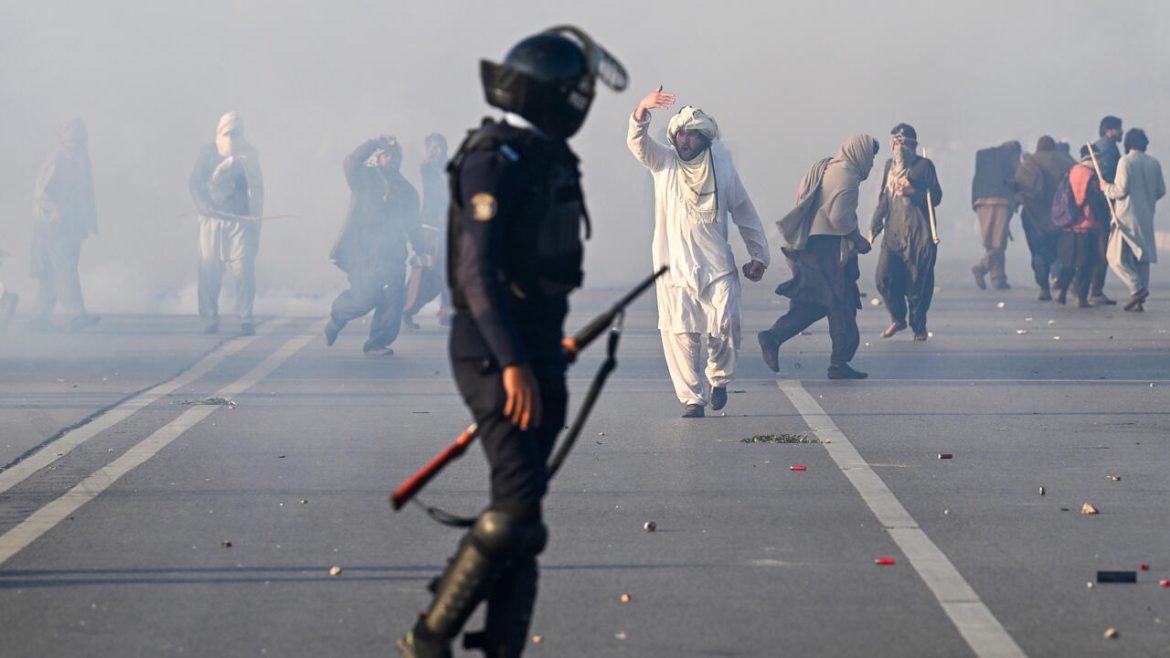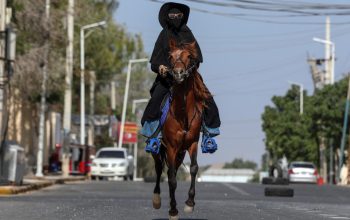Ex-prime minister Khan was arrested in May last year after being ousted from office and mounting an unprecedented campaign of defiance against the nation’s powerful military leaders.
His detention over graft allegations sparked nationwide unrest, some targeting armed forces installations.
The military — which has ruled Pakistan directly for decades at a time and still wields enormous influence — said last summer it would try the accused in court martials closed to the public.
The process was largely opaque until Saturday, when the military announced the first 25 convictions — prompting condemnation from the United States, European Union and United Kingdom.
“These military courts lack judicial independence, transparency, and due process guarantees,” US State Department spokesman Matthew Miller said in a statement.
Announcing 60 more convictions on Thursday, the military said the court martials had now concluded.
All of the 85 men were sentenced to between two and 10 years of “rigorous imprisonment”. The military did not make clear what their convictions were, listing only the location of their offences.
“The Nation, Government, and the Armed Forces remain steadfast in their commitment to upholding justice and ensuring that the inviolable writ of the state is maintained,” a military statement said.
Khan’s Pakistan Tehreek-e-Insaf (PTI) party said his nephew was among the men whose convictions were announced on Thursday, and that he was sentenced to a decade in prison.
“Conducting trials in military courts has undermined the fundamental rights of citizens,” Khan said, according to a summary of a conversation he had with lawyers and press inside jail, released on X.
Broadsides from abroad
The UK government said on Monday that Pakistan’s decision to convict civilians in army courts “lacks transparency, independent scrutiny and undermines the right to a fair trial”.
The European Union said Pakistan is reneging on its international rights obligations, which guarantee legal judgements are made public.
But Islamabad’s foreign ministry spokeswoman on Thursday rejected the criticism, saying “Pakistan’s constitution and legal systems have the capacity to resolve any issues that arise internally”.
Former cricket star Khan served as prime minister from 2018 to 2022, when he was ousted by parliament in a no-confidence vote.
Khan’s May 2023 detention lasted a matter of days but he was re-arrested three months later and has remained imprisoned since, facing a parade of court cases he claims are politically motivated.
The 72-year-old was barred from running in February elections which were marred by rigging allegations.
Meanwhile, PTI was targeted by a sweeping crackdown following the unrest, with thousands of grassroots supporters and senior officials arrested.
A coalition of parties considered close to the military establishment emerged as the new government.
© 2024 AFP



